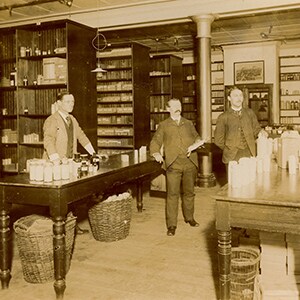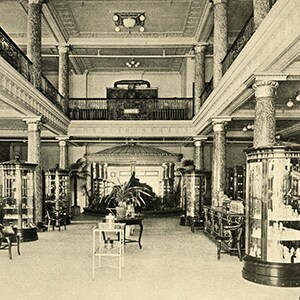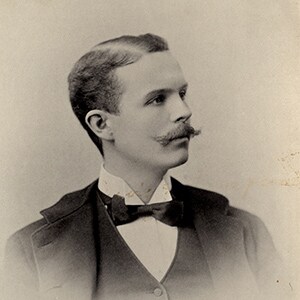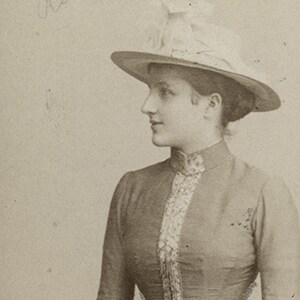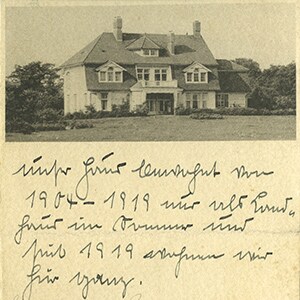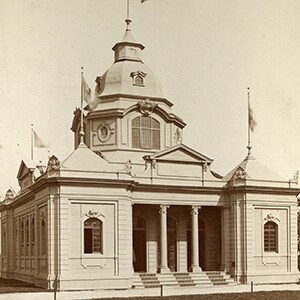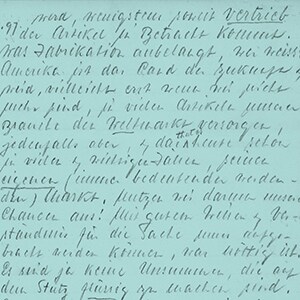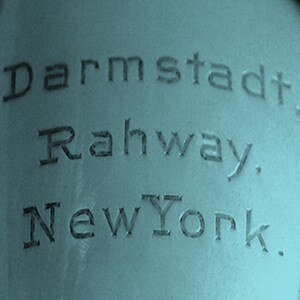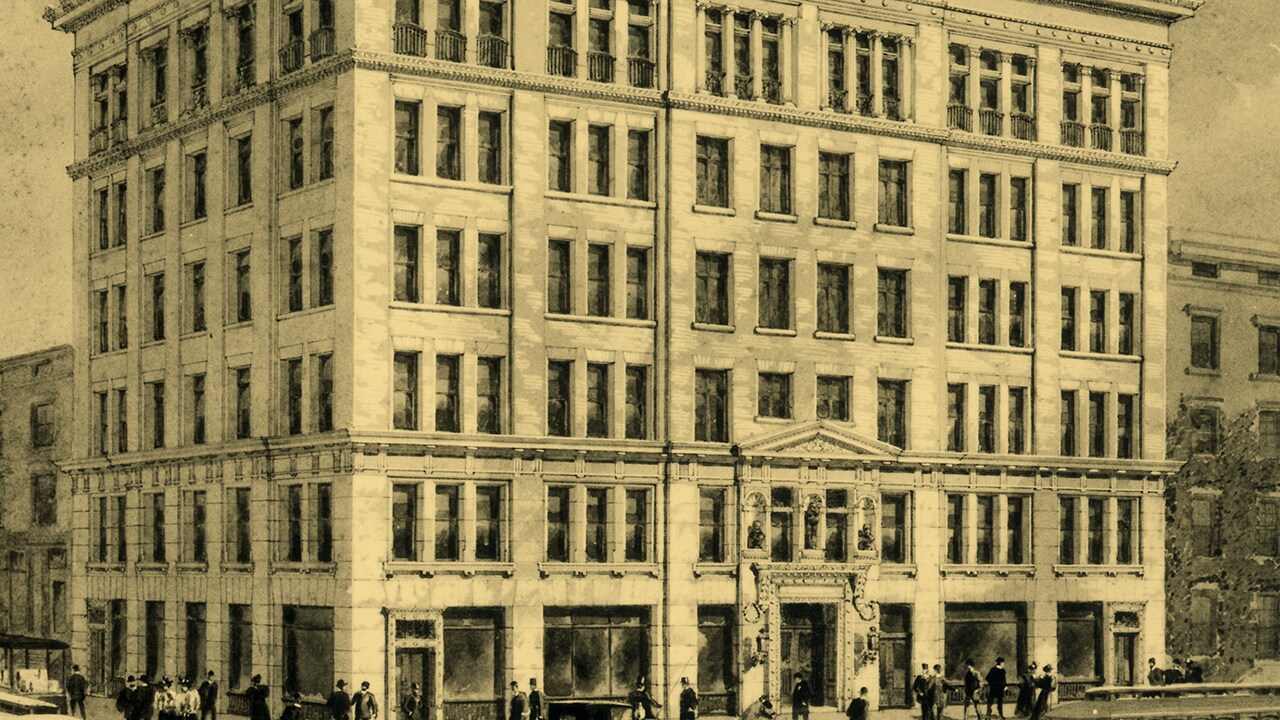
»Dr. Louis Merck [said] with striking emphasis: ›Off to America!‹ The fact that with these three words he had hailed the dawn of a new era, a golden age of the company, occurred to no one present at the time.«
Wilhelm Conzen recalling a meeting in Darmstadt, 1897
The export business to the United States is quite successful when in 1897 reports of product counterfeiting suddenly begin to accumulate. The good name is in jeopardy. A separate branch for the sale of »excellent chemicals, alkaloids and pharmaceutical preparations« is necessary and the complex task soon makes it advisable to have a member of the family present locally.
Georg Merck joins the company as a businessman in 1886. He had gained experience abroad in Paris and London. He is prepared. In 1890, he and a partner establish a company »domiciled in New York under the name of Merck & Co.«, the business is publicly established in 1891 as a »new branch«. Relations with the parent company are the subject of heated conversations across the Atlantic, especially financial aspects. Since integrity and respect are highly valued in the family, acceptable solutions are found. For many more years, the branch is more of a typically German than a typically American company.
As of 1900, a branch office operates in Chicago. The high tariffs on imports hurt. Should the company not also set up its own production? Factories are built in Rahway and St. Louis. Scientific and technical expertise is urgently needed – Darmstadt provides assistance and manpower. When capital requirements increase, the branch is registered with foresightedness as a stock corporation in 1908.
World War I changes everything. There is an embargo against Germany, the British sea blockade makes Atlantic crossings impossible. In 1917, the United States enters the war. The Trading with the Enemy Act enables the Office of Alien Property Custodian to take action with respect to the property of private German individuals and companies – all the way to confiscation. The company branch is also confiscated. The situation is unclear. George Merck declares that he alone owns 20% of the branch. As regards the remaining 80%, he also argues that this is not allocable to the German company »E. Merck«. The auditors have their doubts because »Merck & Co.« appears to be very »German« – conservatively financed, conservatively organized. These interests are to be publicly auctioned.
George Merck is a U.S. citizen and his loyalty is undisputed – he can submit a bid himself with the support of partners. The McKenna Corporation, set up for this project, actually succeeds with its bid: for US$ 3.75 million. With the completion of the transaction, the separation between »E. Merck«, Darmstadt, Germany, and Merck & Co., USA, Rahway, NJ, is finalized in 1919. George Merck maintains personal contact to the family in Darmstadt until his death.
New York – Gateway to the New World. The pharmaceutical business develops in truly American style. In 1897, the company moves into a very impressive building and opens a pharmacy. This elicits strong objections from the best customers to date – other pharmacies. The endeavor is discontinued.
Friederike Schenck, who marries Georg Merck in 1893, moves with him to the United States. The family, which includes five children, settles in the New Jersey countryside. In 1902, Georg Merck becomes a U.S. citizen, changing the spelling of his German name Georg to George. America becomes a real home to the Merck family.
At the 1893 World’s Fair in Chicago, the young company positions itself with a pavilion. The company has foresight, as George Merck clearly indicates in a letter in 1897: »America is the country of the future [and] will, perhaps only when we no longer exist, supply the world market with many items from our industry.«


